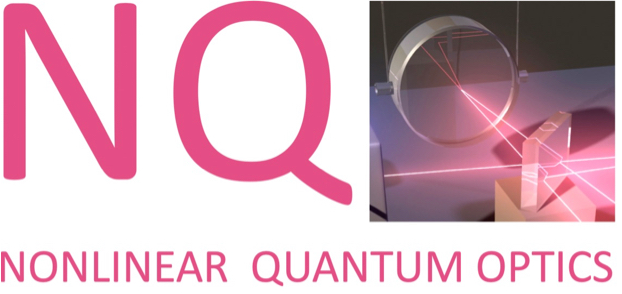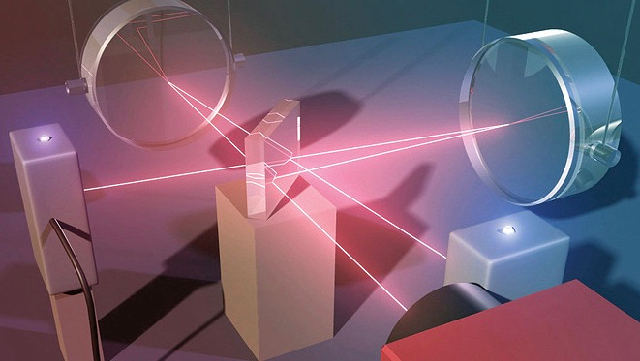Non-linear Quantum optics

Welcome to our group „Non-linear quantum optics” at the IQP of the University of Hamburg!
We have been researching the applicability of squeezed and entangled laser light (Wikipedia-link) and new concepts and technology for measuring gravitational waves.
In 2010 (then still at the Leibniz University of Hannover), the group of Professor Roman Schnabel designed and built the world’s first fully automated "squeeze laser". This laser has been in uninterrupted use in the gravitational-wave detector GEO6001.
1[The LSC, A gravitational wave observatory operating beyond the quantum shot-noise limit, Nature Physics 7, 962 (2011)].
15 dB squeezed light
The Group has been producing the highest squeeze factors since 2008.
[H. Vahlbruch, M. Mehmet, K. Danzmann, R. Schnabel, Detection of 15dB squeezed states of light and their application for the absolute calibration of photo-electric quantum efficiency, Phys. Rev. Lett. 117, 110801 (2016)]
Review article on squeezed light
[R. Schnabel and A. Schönbeck, The “Squeeze Laser”, IEEE Transactions on Quantum Engineering: Quantum Sensing and Metrology 3, 3500209 (2022)]
[R. Schnabel, The success story of squeezed light, Conf. Proceedings Moriond Gravitation 2022]
[R. Schnabel, Einstein would be doubly amazed, Physics Today, 75 (8), 46-51Institut für Quan (August 2022)]
[R. Schnabel, Einstein wäre doppelt verblüfft, PHYSIK in unserer Zeit 52, 130 (2021)]
[R. Schnabel, Squeezed states of light and their applications in laser interferometers, Physics Reports 684, 1-51 (2017)]
[R. Schnabel, N. Mavalvala, D.E.McClelland, P.K.Lam, Quantum metrology for gravitational wave astronomy, Nature Communications 1, 121 (2010)]
Spinn-off for squeezed light
In February 2023, the group founded the world's first company to sell squeeze lasers: Noisy Labs GmbH (spin-off of the University of Hamburg).
Master theses to be awarded
- Machine learning: Test mass stabilisation in the inertial system
- Einstein telescope: Point absorption on superpolished surfaces of silicon crystals?
Overview of the research topics
Collaborations
We are members of the following scientific collaborations:
![]() LIGO Scientific Collaboration (LSC)
LIGO Scientific Collaboration (LSC)






